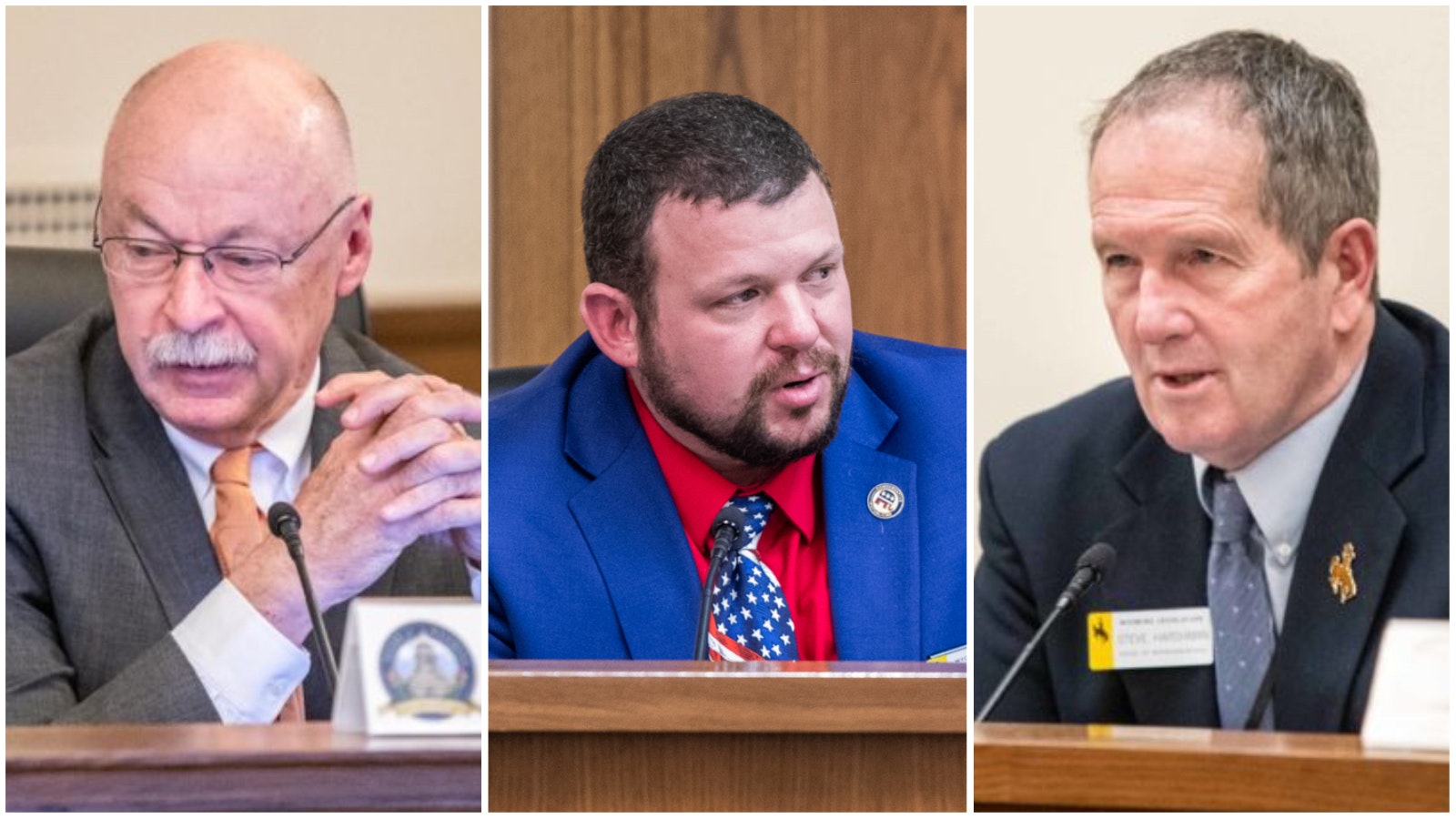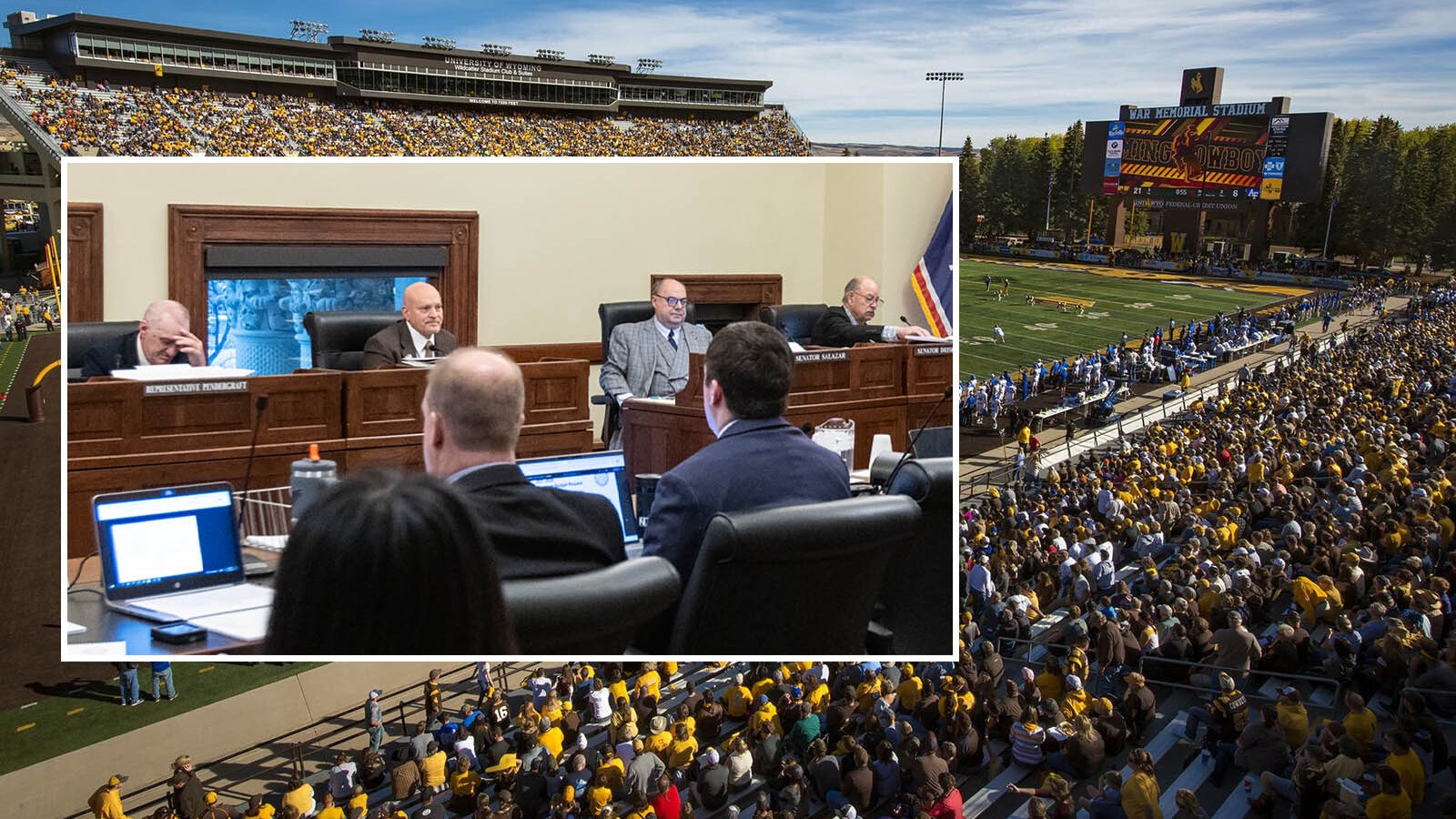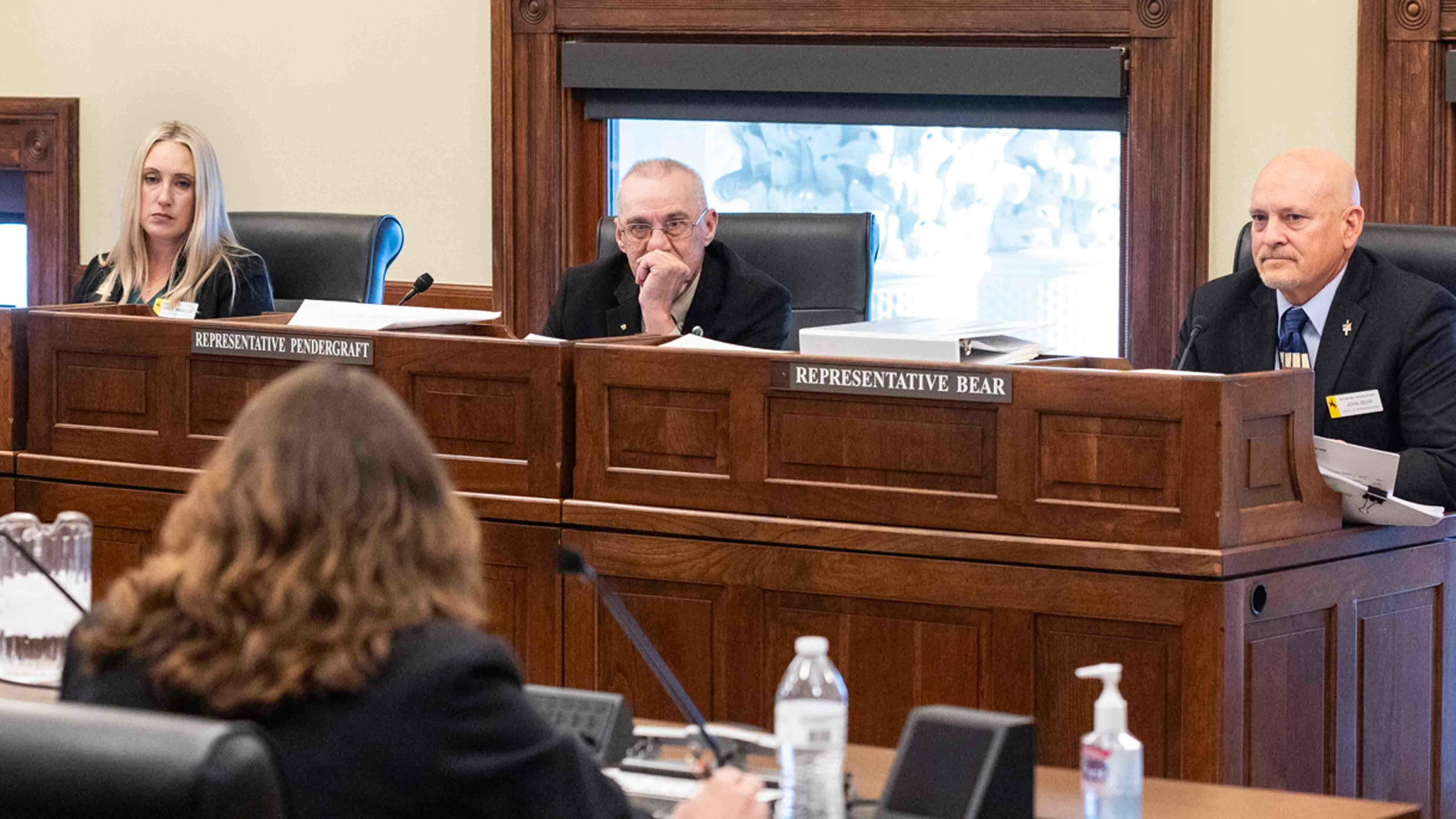The Wyoming state lawmakers are moving forward with another Medicaid expansion bill.
The Joint Revenue Committee voted 9-5 Tuesday to move forward with the Medical Treatment Opportunity Act, which would expand Medicaid services to all those defined as eligible under the Social Securities Act, an estimated 19,000 people in Wyoming, at a cost of $11 million a year.
If passed, Gov. Mark Gordon and other state officials would be instructed to meet with the U.S. Department of Health and Human Services to negotiate a state plan amendment and provide Medicaid coverage.
“We’re sitting on a record amount of money right now,” said state Sen. Cale Case, R-Riverton, in favor of the bill. “Man, we need to do this. It will have a tortuous path to go through the Legislature, but let’s just get this done.”
Not Without Pushback
Although the draft legislation passed, there were a number of concerns raised by the five legislators who voted against it, mostly involving the possible financial risks Wyoming could incur by participating.
Sen. Tom James, R-Green River, got in a brief moment of contention with Stefan Johansson, director of the Wyoming Department of Health, arguing that upper-class people who write off a sizable portion of income on their tax returns could qualify for Medicaid.
Johansson explained that eligibility is based on modified adjusted gross income, which is a different calculation than reported income, and said he would “be extremely surprised” if an individual could legally do this. He mentioned the multiple avenues the state has for prosecuting fraud.
“I want to make sure we’re covering people that don’t have the option for insurance,” James said.
Poverty Level
People who make an income below 100% of the federal poverty level, $13,590 a year in a single-person household, do not qualify for subsidized private insurance benefits offered through the Affordable Care Act marketplace exchange.
The Affordable Care Act provides subsidies for private health insurance to anyone who earns 100% or more of the federal poverty level. Anyone who earns less falls into a “coverage gap.”
In addition to the below poverty-line population, under the Medicaid expansion, those making up to 138% of the federal poverty level would be covered. Johansson said it’s expected those making under the poverty line would make up about 60% of new enrollees.
James also made a claim about people being “pushed out” from receiving Medicaid if too many people sign up, but Johansson said there is no basis to this concern or cap on enrollees.
Rep. Mark Jennings, R-Sheridan, expressed concerns that Wyoming’s health care facilities would not be able to handle an increase in demand for services, many of which are already short on employees.
A Boost For Health Care
“The problem is getting people to move to Wyoming,” Jennings said. “It’s just a problem, not all of them want to ski.”
Sheila Bush of the Wyoming Medical Society said this shouldn’t be a concern as she said studies have shown Medicaid expansion makes it easier for states to recruit new health care employees, as it typically raises salaries by about 5% and creates a healthier patient base. She said most students stay in the state in which they train.
“Medicaid expansion is a critical part of being able to recruit,” she said.
Bush mentioned a letter to the editor Wyoming medical students wrote in the Casper Star Tribune last week advocating for expansion. “They want care delivered in the right place in the right time and the right way.”
James argued against this logic, finding it hard to believe that doctors would take on more patients when they receive less from Medicaid patients.
Wyoming An Island
Wyoming is the only state in the West that has not passed some form of Medicaid expansion, according to the Kaiser Family Foundation. A 2021 New Bridge Strategy poll found that 66% of Wyoming residents support Medicaid expansion.
“Our population has the slowest growth of any surrounding states,” Case said. “A lot of it is quality of life, and quality of life is how people are doing. Employers want it. The medical community wants it. The financial incentives are incredible.”
Case, who works in the tourism industry, said he doesn’t provide health insurance to his employees because he can’t afford it.
Montana Comparisons
The federal government pays 90% of Medicaid costs for enrollees, leaving participating states to pay the remaining 10%. This compares to the 50% now paid by Medicaid enrollees in Wyoming. At 50%, Wyoming gets the lowest federal matching rate for most of its Medicaid groups, which is lower than Montana’s 64% match.
There is no past precedent of the federal government dropping below the 90/10 match, but it has reduced, as planned, below its original 100% offer originally established in the Affordable Care Act, a scenario that caused a 10% reduction in Montana’s Medicaid match. Montana has a trigger clause built into its Medicaid expansion where it will be retired if the government reduces its match below 90%. The ACA would have to be revoked for the 90/10 match to go away.
A Gray Area?
Although there is no stipulation in the current version of the bill as to what would happen in Wyoming if the federal government were to revoke its matching funding, there also are no examples of the federal government trying to force a state to continue to offer its Medicaid program after expanding.
Ed Buttrey, a Republican state representative from Montana, spoke on behalf of Medicaid expansion on Tuesday, sharing his state’s experience with the expansion. Montana’s program costs his state about $80 million to $85 million per year.
“We knew that if we were going to have a program and continue to have a program, we were going to have to pay for it,” he said.
Buttrey said expanding Medicaid allowed his state to prevent the closure of rural hospitals, provide many opportunities for substance abuse treatment and reduce costs for uncompensated care by 50%. He said total savings amounted to 52% to 56% of the expansion cost.
“Basically, the sky didn’t fall,” he said.
Positive Revenue For Providers
Josh Hannes of the Wyoming Hospital Association said the state’s hospitals must pay $120 million a year in uncompensated care. Hannes said the majority of people in this uncompensated care group do not have health insurance.
“The net revenue for providers would be positive,” Hannes said.
A recent report released by The Center on Budget and Policy Priorities, which purports to be a nonpartisan group, says the “uninsured rate fell steeply” in Montana following expansion, while Wyoming’s “has increased steadily” during the same period.
Montana implemented Medicaid expansion at the beginning of 2016, following the 2015 passage of a bill authorizing the expansion by its state legislature. The report said that Montana “recouped enough savings within Medicaid to cover between 23% and 68% of the state cost of expansion in 2019.”
Hard Costs
The Wyoming Department of Health recommends setting aside $22 million for the expansion’s first two years. That would be paired with a $177 million federal contribution, which would give Wyoming a surplus of $32 million after the first year of expansion, enough to cover the state’s share of costs in the second year.
Under the American Rescue Plan Act, states that newly expand Medicaid can get a 5% bump in their traditional federal match for two years, which would bring in a total of $54 million to the state on top of the new federal funds for Medicaid expansion.
The Medical Treatment Opportunity Act, which was already considered by the 2021 Wyoming Legislature, still has a long road before getting passed into law, as it must make it through the House and Senate in this year’s upcoming session.
Medicaid expansion bills have been brought before the Wyoming Legislature eight times in the past two years. Since the passage of Obamacare, there has been a national push to expand Medicaid services to low-income earners.
Reps. Mark Baker, R-Green River, and Tim Hallinan, R-Gillette, said although they believe Wyoming’s health care needs to be improved, they do not think the Treatment Opportunity Act is the answer at this time.
“I don’t think this is the right bill right now,” Baker said. “Unfortunately, people have had to suffer in the meantime.”ad to suffer in the meantime.”





